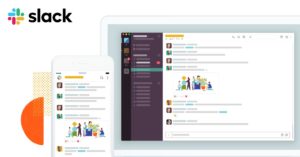Looker: Business Intelligence Platform with Daniel Mintz
Podcast: Play in new window | Download
Subscribe: RSS


If a business has been operating successfully for a few years, that business has accumulated a high volume of data. That data exists in spreadsheets, CSV files, log files, and balance sheets. Data might be spread across local files on a user’s laptop, databases in the cloud, or storage systems in an on-premise data center.
Older businesses have more data, in more places, in more formats. Legacy systems and old batch processing jobs that have been running for years are taking data from one place and porting it to another.
Every mature company needs to access and analyze the data in all of these different places–whether they are a publication with millions of readers like The Economist or a fast growing infrastructure provider like Twilio.
“Business intelligence” is a term often used to describe tools for analyzing data in the form of charts, graphs, and reports. Business intelligence applications are crucial to the success of a business because they are used by everyone in an organization–whether you are a business analyst forecasting sales for the next quarter, an engineer who is determining how many servers to provision, or a CEO trying to decide what the best area of your business to focus on is.
There have been several generations of business intelligence tools. Each generation of business intelligence is built for the trends and infrastructure of that generation.
Looker is a more recent business intelligence tool that was built in light of several trends in software: the growth in volume of data; the growth in the number of systems that users need; the changing types of users that need to access data; and the need to share business intelligence across social workplace tools like Slack, Asana, and email.
Daniel Mintz joins the show to describe his experience using business intelligence tooling and his work at Looker, as well as the landscape of business intelligence, ETL, and data engineering.
Transcript
Transcript provided by We Edit Podcasts. Software Engineering Daily listeners can go to weeditpodcasts.com/sed to get 20% off the first two months of audio editing and transcription services. Thanks to We Edit Podcasts for partnering with SE Daily. Please click here to view this show’s transcript.
Sponsors
MongoDB is the most popular nonrelational database. MongoDB Stitch is a serverless platform from MongoDB, that allows you to build rich interactions with your database. To try it out yourself today, experiment with $10 in free credit by going to mongodb.com/sedaily.
Digital Ocean is the easiest cloud platform to run and scale your application. Try it out today and get a free $100 credit–go to do.co/sedaily. Digital Ocean is a complete cloud platform to help developers and teams save time when running and scaling their applications.
Triplebyte is a company that connects engineers with top tech companies. We’re running an experiment and our hypothesis is that Software Engineering Daily listeners will do well above average on the quiz. Go to triplebyte.com/sedaily.
OpenShift is a Kubernetes platform from Red Hat. OpenShift takes the Kubernetes container orchestration system and adds features that let you build software more quickly. OpenShift includes service discovery, CI/CD, built-in monitoring and health management, and scalability. With OpenShift, you avoid getting locked into any particular cloud provider. Check out OpenShift from RedHat, by going to softwareengineeringdaily.com/redhat.























